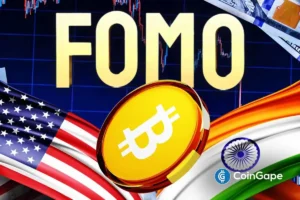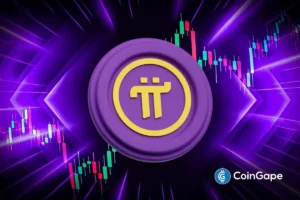JPMorgan’s Shift: Jamie Dimon Embraces Bitcoin Amidst Skepticism
In a surprising turn of events, JPMorgan CEO Jamie Dimon recently announced that the bank plans to offer Bitcoin (BTC) to its customers, marking a significant departure from his historically negative stance on cryptocurrencies. During JPMorgan’s Investor Day, Dimon reiterated his personal reservations, stating he is “not a fan” of Bitcoin but recognizes the increasing demand from clients to access the digital asset. He emphasized this shift by declaring, “I don’t think you should smoke, but I defend your right to smoke. I defend your right to buy Bitcoin,” showcasing his acknowledgment of the evolving financial landscape despite his skepticism.
Dimon’s Ongoing Skepticism Towards Bitcoin
Despite his recent announcement, Dimon’s criticism of cryptocurrencies remains steadfast. In past interviews, he has labeled Bitcoin as “worthless” and tied the digital currency to illicit activities. His comments at the 2023 Senate testimony advocated for the shutdown of the cryptocurrency industry altogether. Most notably, at the 2024 World Economic Forum in Davos, he dismissed Bitcoin as a “pet rock” and previously described crypto as a “Ponzi Scheme.” Furthermore, during his May 19 remarks, he suggested that the significance of blockchain may be overstated, indicating a nuanced perspective despite the bank’s increasing involvement in blockchain infrastructure.
JPMorgan’s Blockchain Infrastructure Development
JPMorgan has continued to invest in blockchain technology for institutional applications, indicating a strategic pivot despite Dimon’s reservations about individual cryptocurrencies. Earlier this month, Kinexys successfully executed a test transaction that linked its private network with a public layer-1 blockchain, utilizing tokenized short-term Treasury assets and real-time settlement protocols. This collaboration included notable players like Chainlink and Ondo Finance. Additionally, Kinexys processes over $2 billion in transactions daily and aims to enhance dollar-euro settlements through JPM Coin, the bank’s proprietary token, thereby reaffirming JPMorgan’s commitment to blockchain advancements despite its CEO’s ambivalent stance on cryptocurrencies.
Growing Crypto Holdings and ETF Exposure
Amid the backdrop of Dimon’s recent comments, JPMorgan’s latest 13F filing to the US Securities and Exchange Commission (SEC) reveals a remarkable surge in its cryptocurrency exposure through exchange-traded funds (ETFs). As of March 31, 2025, the bank reported crypto-related holdings totaling $16.3 million, a drastic increase from just $1 million at the end of 2024. These holdings are predominantly concentrated in Bitcoin and Ethereum-linked instruments, indicating the bank’s strategy to cater to growing client demand for digital assets.
Significant ETF Positions
As part of this expansion into the crypto sector, JPMorgan revealed it holds over 263,000 shares of BlackRock’s iShares Bitcoin Trust (IBIT) and approximately 3,000 shares of Bitwise’s spot Bitcoin ETF (BITB). The bank also has investments in Grayscale’s Bitcoin Trust (GBTC), Mini Trust ETFs, and Fidelity’s Wise Origin Bitcoin Fund (FBTC), along with new allocations to Bitwise and Franklin Templeton Ethereum products. While these crypto-related holdings represent only a small fraction of JPMorgan’s considerable $4.4 trillion asset portfolio, they underscore the bank’s readiness to engage with evolving market conditions.
The Road Ahead: Balancing Tradition and Innovation
While it remains ambiguous how much of JPMorgan’s crypto portfolio reflects proprietary positions versus client-centered facilitation, the bank’s leadership is clearly adapting to the increasing legitimacy and popularity of cryptocurrencies. JPMorgan has previously indicated that holding certain ETF allocations might coincide with its market-making services, reinforcing a dual strategy of traditional finance and digital asset integration. This evolving dynamic poses intriguing questions about the future of cryptocurrency within established financial frameworks, particularly as companies like JPMorgan adapt to shifting market trends and consumer demands.
In conclusion, Jamie Dimon’s recent pivot towards offering Bitcoin to JPMorgan’s clients highlights the complexity of cryptocurrency’s evolving role in the financial landscape. Despite his long-standing criticisms, the bank’s strategic investments in blockchain infrastructure and increased crypto holdings illustrate a pragmatic response to client expectations. As JPMorgan navigates this new terrain, the balance between skepticism and innovation may well define its future in the world of digital assets.

















